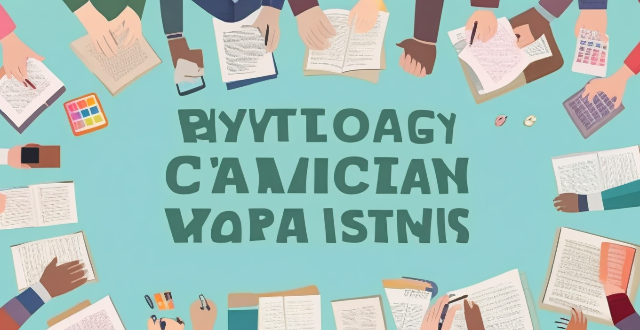Educational psychology can enhance teacher-student relationships by promoting empathy, clear communication, effective classroom management, emotional intelligence, cultural competence, personalized instruction, and collaboration. Understanding diverse student needs, active listening, consistent messaging, feedback, clear boundaries, fair discipline, self-awareness, managing emotions, inclusivity, adaptability, tailored instruction, personalized attention, parental involvement, and peer support are all strategies that contribute to a positive learning environment.

How Can Educational Psychology Improve Teacher-Student Relationships?
Educational psychology plays a crucial role in enhancing the dynamics between teachers and students. By understanding psychological principles, educators can foster a more positive and productive learning environment. Here's how:
Empathy and Understanding
Recognizing Diverse Needs
Teachers who understand the diverse needs of their students can tailor their teaching approach to suit each individual. This includes recognizing different learning styles, cultural backgrounds, and personal circumstances.
Active Listening
Active listening involves giving full attention to what students are saying, both verbally and non-verbally. It helps teachers pick up on cues that a student may be struggling or in need of support.
Communication Skills
Clear and Consistent Messaging
Clear communication reduces misunderstandings and sets expectations for behavior and performance. Consistency in messaging also builds trust and respect between teachers and students.
Feedback and Encouragement
Providing regular feedback, both positive and constructive, helps students understand their progress and areas for improvement. Encouragement boosts confidence and motivation.
Classroom Management
Setting Clear Boundaries
Establishing clear rules and boundaries creates a sense of structure and predictability in the classroom, which can reduce anxiety and increase focus.
Fair and Consistent Discipline
Fair and consistent discipline shows that all students are valued and that their behavior has consequences. It also models accountability and responsibility.
Emotional Intelligence
Self-Awareness
Teachers with high emotional intelligence are aware of their own emotions and how they impact their interactions with students. This self-awareness allows them to regulate their reactions and maintain a calm demeanor.
Managing Emotions
Being able to manage emotions during challenging situations, such as handling disruptive behavior or addressing sensitive topics, is vital for maintaining a respectful and supportive classroom atmosphere.
Cultural Competence
Inclusivity
Cultural competence involves creating an inclusive environment where all students feel valued and respected for their unique backgrounds and perspectives.
Adaptability
Adapting teaching methods to accommodate different cultural norms and values helps ensure that all students can engage effectively with the material being taught.
Differentiation and Personalization
Tailored Instruction
Differentiating instruction to meet individual needs allows students to work at their own pace and level of difficulty, leading to greater success and satisfaction.
Personalized Attention
Giving personalized attention shows that teachers care about each student's learning journey, which can strengthen the bond between teacher and student.
Collaboration and Partnership
Parental Involvement
Collaborating with parents ensures that there is consistency in expectations and support systems outside of school, which benefits both the student and the teacher-student relationship.
Peer Support
Encouraging peer support through group work and cooperative learning activities promotes a sense of community within the classroom, reducing barriers between students and their teacher.
In conclusion, educational psychology provides valuable insights into human behavior that can significantly improve teacher-student relationships. By implementing these strategies, educators can create a more positive, engaging, and effective learning environment for all involved.